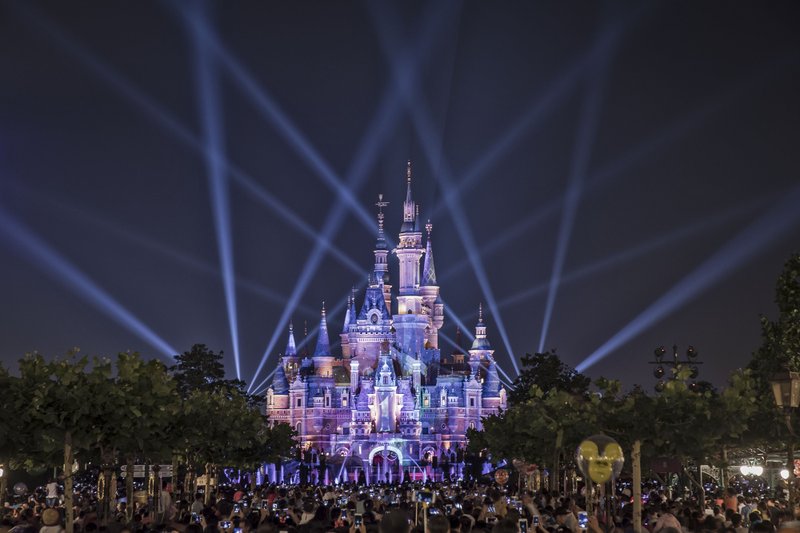Two years ago, Wang Jianlin, once China's richest man, referred to his network of theme parks as a "wolf pack" that would chase Walt Disney Co. and its Shanghai Disney-land from China. Last week, Shanghai Disney unveiled a major expansion of its $5.5 billion park, now the most popular in China. Wang, by contrast, is out of the business altogether.
Wang's roller-coaster descent is in part a tribute to Disney's global appeal. But it also reveals shortcomings in government policy--and shows just how far China's entertainment companies must go to match Hollywood's standards.
As far back as the mid-1990s, large-scale theme parks began opening in China's bigger cities. By the early 2000s, smaller ones were a common sight across the country. Yet only 10 percent of those parks were profitable.
Enter Wang and his Dalian Wanda Group Co., one of the biggest and best-connected developers in the world. Wang had plenty of development experience. He had a vision too. As a patriotic army veteran, he wanted to build attractions that celebrated Chinese culture, not Mickey Mouse. And he wasn't joking around: He committed about $30 billion to build as many as 20 parks.
But Wang was soon in over his head. While Shanghai Disney drew 11 million visitors in its first year, Wang's $510 million park in Wuhan, expected to attract 3 million annual visitors, was attracting about 200 a day in 2016.
In retrospect, it may seem obvious that an experienced theme-park operator like Disney would triumph over a trash-talking real-estate developer. But Wanda's failures ran much deeper. Most important, it lacked Disney's reservoir of globally appealing intellectual property--including characters such as Mickey Mouse and the Avengers and instead relied on more traditional themes.
Traditional culture is certainly popular (and marketable) in China. But a theme park needs more than, say, "Hubei in the Air," a not-so-inspired virtual flyover of the Wuhan park's home province. Until China develops its own intellectual properties--and it surely will--Disney, Universal Studios and other global entertainment giants will have a distinct advantage.
In the short term, that's good news for Disney and other foreign operators that have the capital to spend big and the characters to make a theme park come alive. They and their local partners are likely to prosper until Chinese companies develop a compelling catalog of their own characters and fantasies. That won't happen overnight; it took Walt Disney almost 30 years to go from Mickey Mouse to the first Disneyland. But if nothing else, the journey promises to be entertaining.
------------v------------
Adam Minter is a Bloomberg View columnist.
Editorial on 05/05/2018
